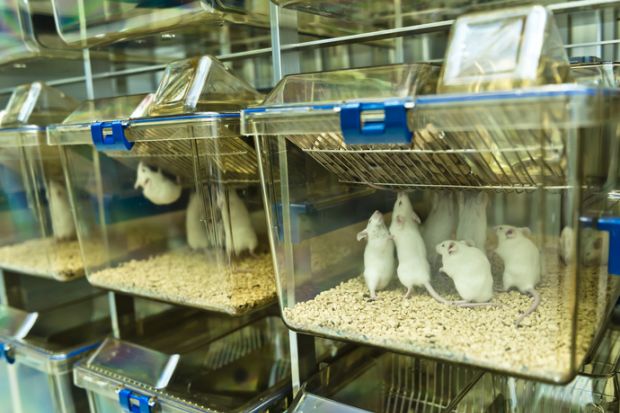Leading research institutes have criticised proposed amendments to Germany’s Animal Welfare Act, arguing that the changes increase the penalties biomedical researchers could face without resolving existing ambiguities in the law.
If adopted, a draft bill from the Federal Ministry of Food and Agriculture (BMEL) would impose a prison sentence of between six months and five years on those convicted of repeatedly killing or harming vertebrates, or of killing or harming a “large number” of vertebrates, “without reasonable cause”.
The existing law does not refer to the number of animals killed or harmed, nor does it specify a minimum prison sentence. Those convicted of killing or inflicting “suffering” on a vertebrate currently face a fine or a prison sentence of up to three years.
Andreas Lengeling, animal research and welfare officer at the Max Planck Society, said the existing law was already problematic for biomedical researchers because it failed to define a “reasonable cause” for killing or harming vertebrates.
“No one wants to kill an animal without justification,” he said, noting that current regulations do not specify the circumstances under which researchers may euthanise “bred but not used” animals – those bred for research but not used because they did not have the right genetic characteristics or sex for a study.
“The big question is how to deal ethically with these animals without risking criminal charges for unauthorised killing of such animals. The current law has no answer for this question,” said Dr Lengeling.
Roman Stilling, scientific adviser for the initiative Understanding Animal Testing (TVV), said the draft bill had raised “deep concerns within the research community” because it maintained the “legal uncertainty” of the present law while significantly increasing the penalty for those convicted.
“The scientific community is already quite concerned with the existing uncertainty. Even though not a single penalty has arisen from this situation for researchers or support staff working with animals so far, the potential risk is looming. And this risk might become unbearable if the new law passes,” he said.
Dr Lengeling said scientists might “think twice” about conducting animal research in Germany if the draft bill was adopted. “If they are under threat of criminal charges for carrying out biomedical research, [such as] generating animal disease models or following up fundamental research by using animals, they would probably stop this kind of research.”
The law would not require significant changes to protect researchers, he said: “Most scientists would be happy if the law could be a bit more precise.
“With a clarification of the ‘reasonable cause’ for animals used for scientific purposes, most scientists…would be largely relieved from the described pressure.”
A BMEL spokesperson said the amendments were “intended to close legal and enforcement gaps” and had been coordinated with the Federal Ministry of Education and Research.




